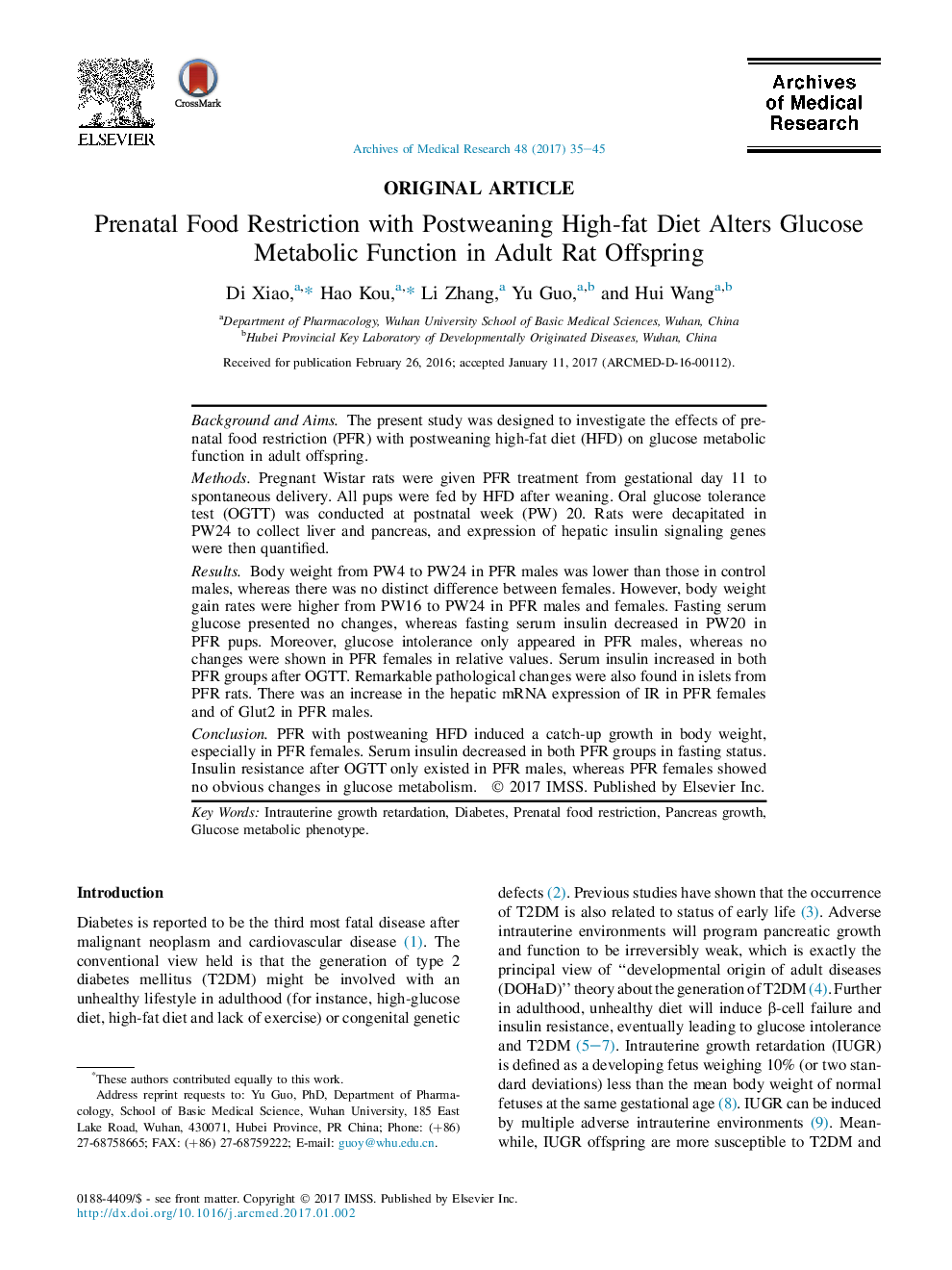| Article ID | Journal | Published Year | Pages | File Type |
|---|---|---|---|---|
| 5677198 | Archives of Medical Research | 2017 | 11 Pages |
Background and AimsThe present study was designed to investigate the effects of prenatal food restriction (PFR) with postweaning high-fat diet (HFD) on glucose metabolic function in adult offspring.MethodsPregnant Wistar rats were given PFR treatment from gestational day 11 to spontaneous delivery. All pups were fed by HFD after weaning. Oral glucose tolerance test (OGTT) was conducted at postnatal week (PW) 20. Rats were decapitated in PW24 to collect liver and pancreas, and expression of hepatic insulin signaling genes were then quantified.ResultsBody weight from PW4 to PW24 in PFR males was lower than those in control males, whereas there was no distinct difference between females. However, body weight gain rates were higher from PW16 to PW24 in PFR males and females. Fasting serum glucose presented no changes, whereas fasting serum insulin decreased in PW20 in PFR pups. Moreover, glucose intolerance only appeared in PFR males, whereas no changes were shown in PFR females in relative values. Serum insulin increased in both PFR groups after OGTT. Remarkable pathological changes were also found in islets from PFR rats. There was an increase in the hepatic mRNA expression of IR in PFR females and of Glut2 in PFR males.ConclusionPFR with postweaning HFD induced a catch-up growth in body weight, especially in PFR females. Serum insulin decreased in both PFR groups in fasting status. Insulin resistance after OGTT only existed in PFR males, whereas PFR females showed no obvious changes in glucose metabolism.
